A catalytic converter plays a vital role in the performance and efficiency of your vehicle. Without it, your vehicle isn't able to convert harmful gases into less harmful ones. But if your catalytic is damaged, you may wonder if you can bypass it and if it's a good idea.
You can bypass a catalytic converter, but more than likely, it won't pass emissions testing if your state requires it.
Some vehicle owners will install a "straight pipe" or test pipe in place of the catalytic converter to bypass it.
Not only can this release harmful gases into the environment, but it could also impact the vehicle's performance.
It's important to factor in the risks of bypassing a catalytic converter. This article will discuss these risks and how they are done. In addition, we will answer other frequently asked questions about catalytic converters, so read on!
Is There A Way To Bypass A Catalytic Converter?
Think of a catalytic converter as a pollution control system that converts harmful gases into safer gases. Like other vehicle components, a catalytic converter can fail or become damaged, causing it to underperform.
Since catalytic converters can be expensive to replace, some owners would rather bypass them. Essentially, bypassing a catalytic converter consists of removing the old catalytic converter and replacing it with a test pipe or straight pipe.
Not only is this an inexpensive solution, but it can allow a vehicle to produce more horsepower. While this is true, it can negatively affect your vehicle's performance.
When you bypass the catalytic converter, your air/fuel mixture will become richer, which can cause misfires. To combat this, your vehicle's computer must be tuned to the new configuration.
The next issue is not passing an emission test. In states like California, you must do emission testing to register your vehicle. It's a good idea to check your state's emission requirements before bypassing the catalytic converter.
Lastly, your vehicle will be noticeably louder, which may not be an issue for some car owners, but it is something to note.
Depending on what your reasoning is for bypassing a catalytic converter, it's a good idea to weigh the pros and cons. You can also look into getting a high-flow catalytic converter to improve performance and pass emission testing.
If you are unsure of the course of action, it's best to speak to a mechanic who specializes in your type of vehicle. They will be able to give you options and an idea of the costs.
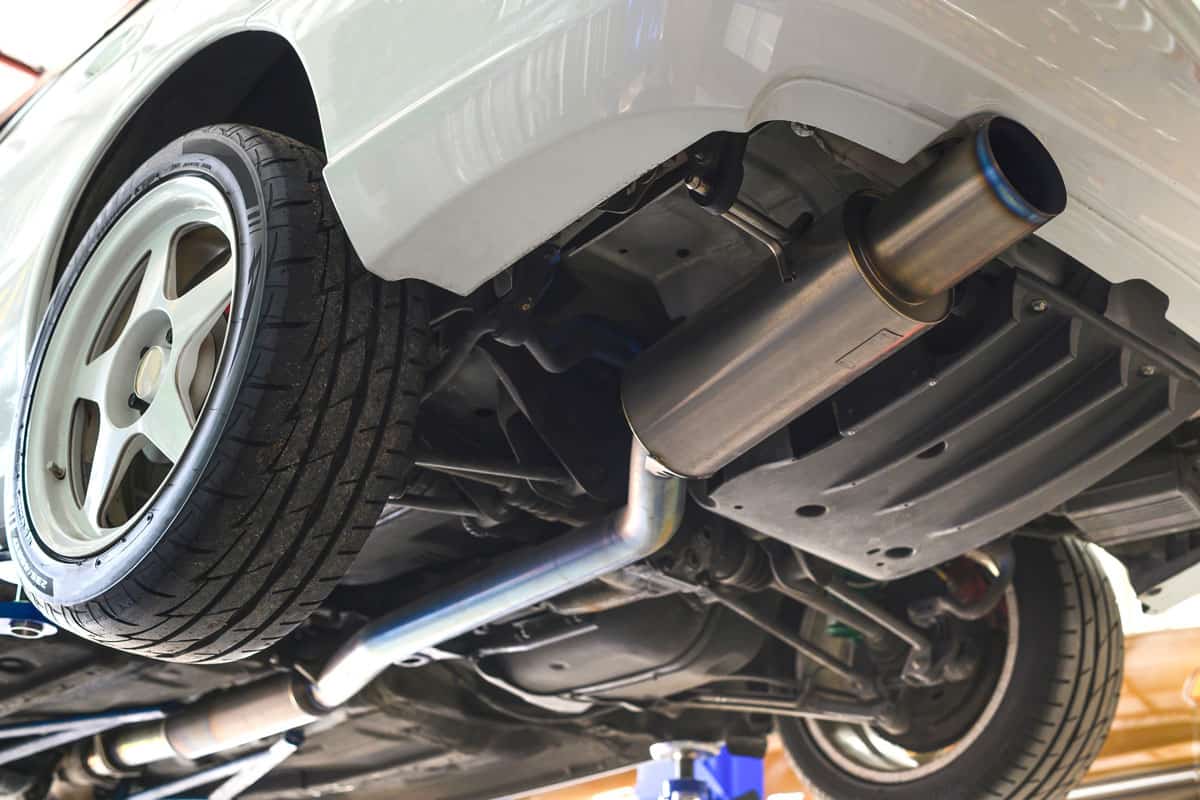
What Can I Do Instead Of Replacing My Catalytic Converter?
Before replacing your catalytic converter, there may be other options to consider. If you notice a check engine light or a decrease in fuel mileage, then it's a sign that there is an issue with the catalytic converter.
While this may be alarming, a check engine light or a decrease in mileage could be fixed without replacing the catalytic converter.
Here are some options to consider:
Check The Codes
If you have an OBD2 scanner or a code reader, then it's recommended to check the engine fault code. If you don't own a code reader, then most auto parts stores, such as Autozone or O'Reilly's, will let you use theirs for free.
This will help you narrow down what could be causing the issue. You may have an oxygen sensor or another sensor that needs to be replaced.
Fuel Additives
If you don't have a check engine light on but are experiencing a decrease in performance, your catalytic converter may be clogged due to built-up deposits.
If this is the case, you can purchase a fuel additive from an auto parts store. This is an inexpensive troubleshooting option and could solve your issue.
Be sure to follow the instructions carefully, and use them as directed on the label.
Clean The Catalytic Converter
If the fuel additive didn't work, you could also do a deep clean on the catalytic converter. This involves removing it and removing the built-up debris.
This is a viable option if you are mechanically inclined and have the right tools. However, if you don't feel comfortable removing and replacing the catalytic converter, you can have a mechanic do the cleaning.
It will cost you more money than doing it yourself, but it will be cheaper than replacing the catalytic converter.
Get The Catalytic Converter Hot
As mentioned, over time, your catalytic converter can accumulate gunk that restricts the flow of exhaust. This is common in vehicles meant for short commutes where you are driving at low speeds.
In this case, you can try getting your catalytic converter hot to help burn off the debris. You will need a series of fast accelerations to get the catalytic converter hot enough.
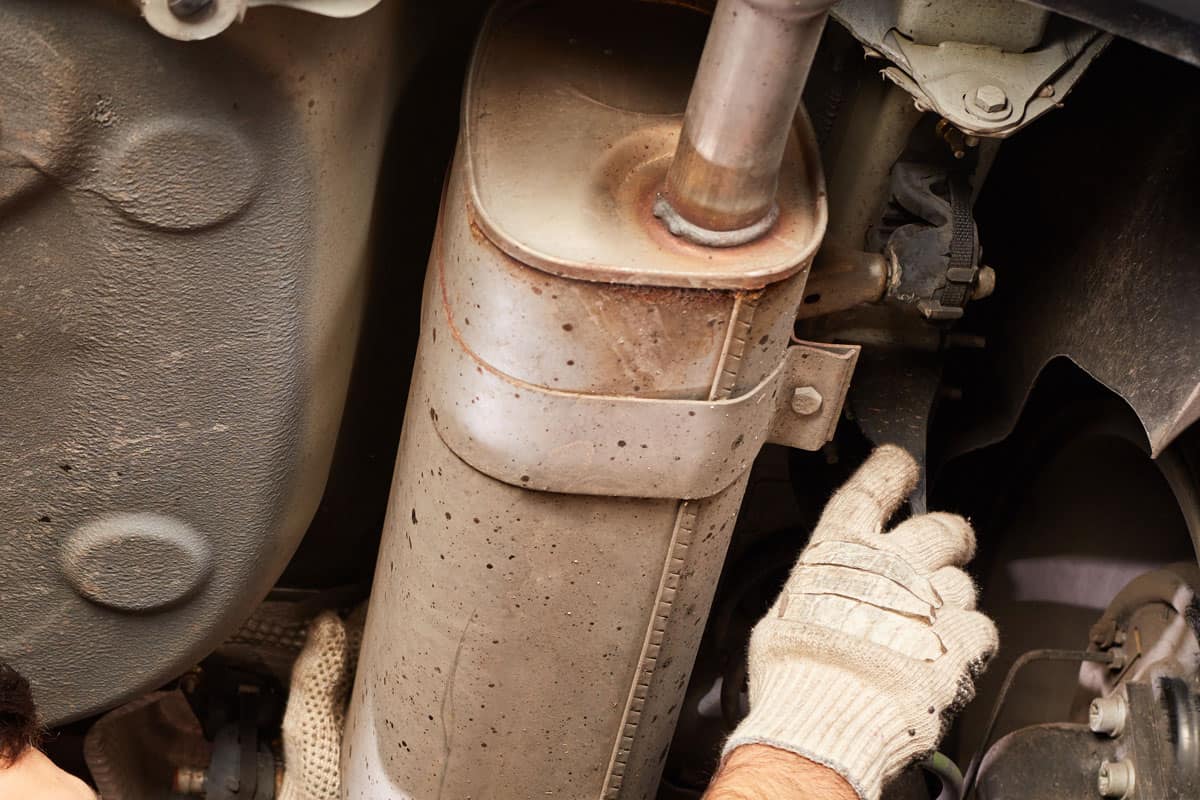
How Do I Know My Catalytic Converter Needs To Be Replaced?
In some circumstances, there won't be anything you can do other than replace the catalytic converter. There are tell-tale signs that your catalytic converter is at the end of its life.
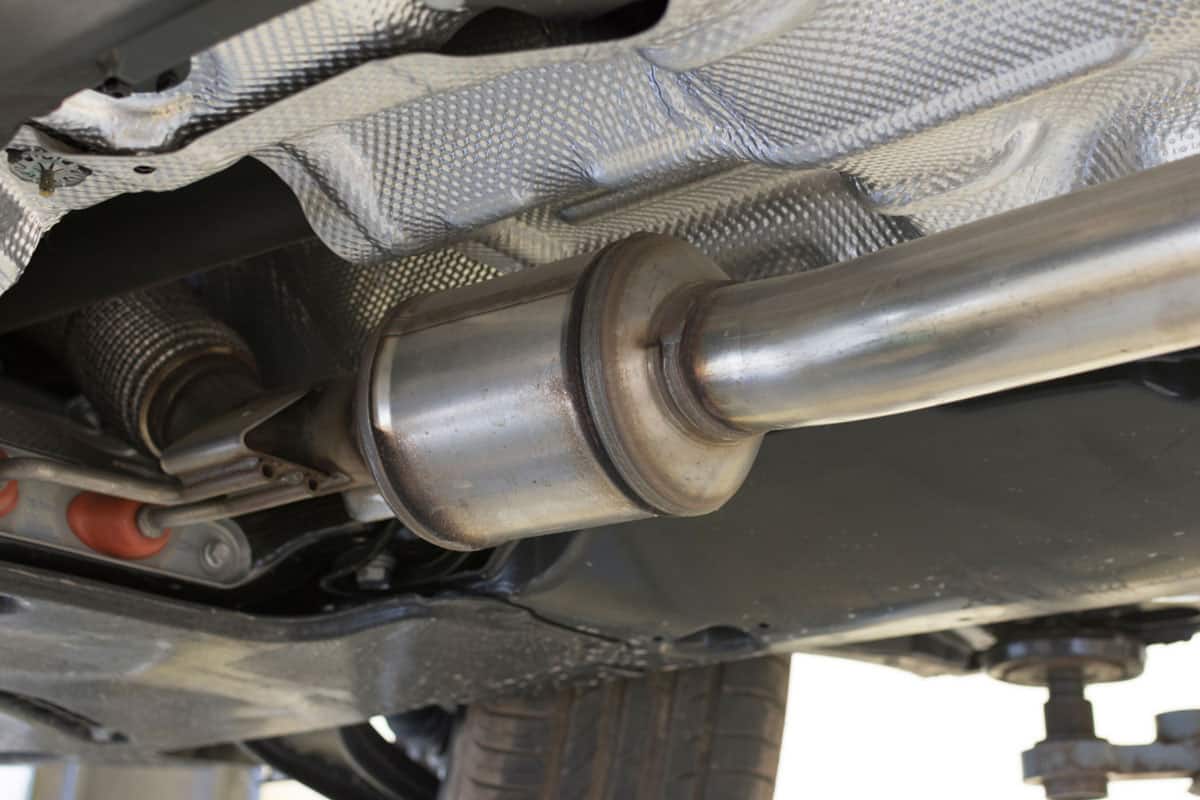
Foul Smell
When a catalytic converter isn't working correctly, it will emit a foul smell similar to rotten eggs or sulfur. This is because the harmful gasses aren't being burned off properly.
Not only will this release harmful gasses into the environment, but the gasses can also seep into your vehicle. The gasses can cause lightheadedness and other health issues.
If you notice this smell when you start your vehicle, it's time to see a mechanic for help.
Rattling Noise
If you aren't smelling anything but hearing a rattling noise whenever you start or drive your vehicle, this could be a sign that the catalytic converter is damaged. A catalytic converter has honeycomb-like parts that can break off, which can cause more damage if it's left unrepaired.
Engine Misfire
A bad catalytic converter can cause your engine to misfire, which is not a good sign. When a catalytic converter is damaged, it can disrupt the combustion in the firing cylinders. This can cause your vehicle to not start or sputter while driving.
If you notice any of these signs, getting a certified mechanic for a diagnosis is best. Waiting will only cause more damage and costly repairs.
How Much Does A New Catalytic Converter Cost?
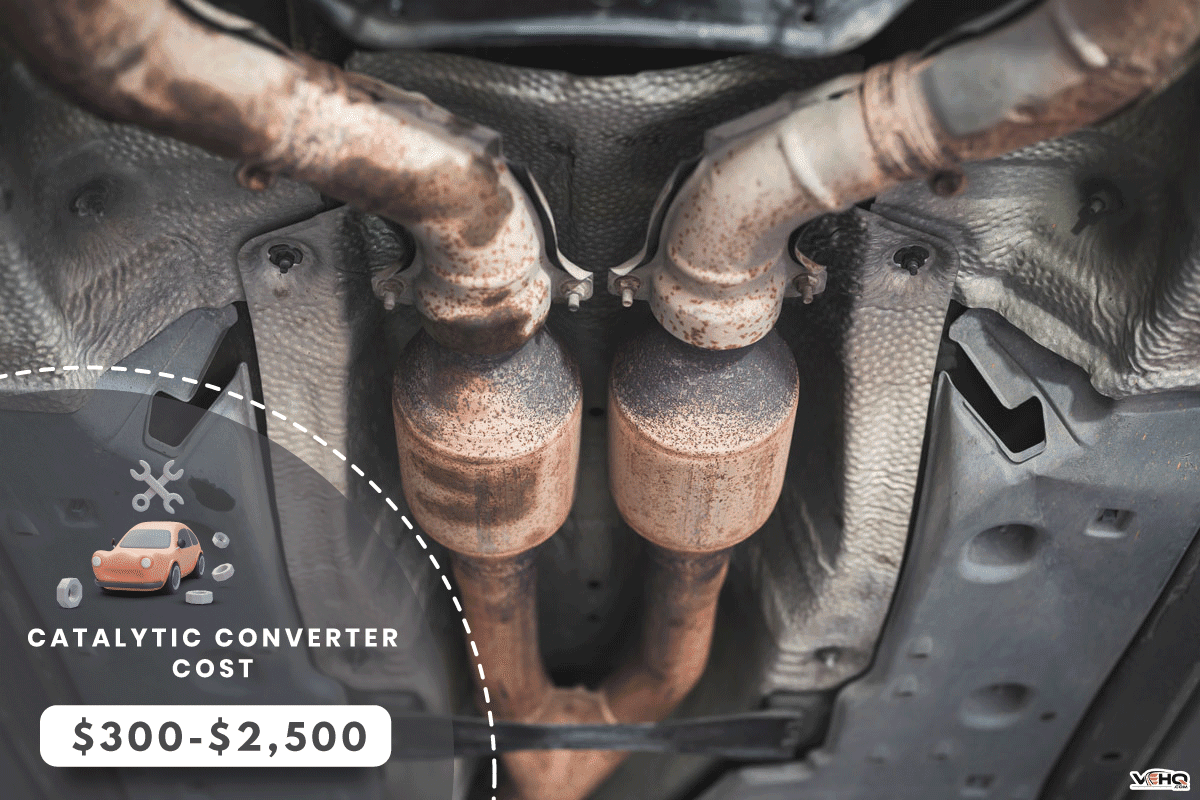
Due to the precious metals that make up the catalytic converter, they can put a dent in your wallet. On average, you can expect to pay $300-$2,500 for a catalytic converter replacement.
Of course, the cost will vary depending on a few factors. First, the vehicle's year, make, and model will affect the price. Bigger vehicles will cost more as they need a bigger catalytic converter to run properly.
The cost will also vary depending on who does the work. In a bigger city, you can expect to pay more than a small-town mechanic. This is related to the cost of living in the area and the amount of work they have.
It's best to always get multiple quotes before choosing a mechanic. You may be able to find someone to do the work for much less.
If replacing the catalytic converter is inevitable, then be sure to recycle the old unit. This way, the precious metals can be used again instead of going to waste.
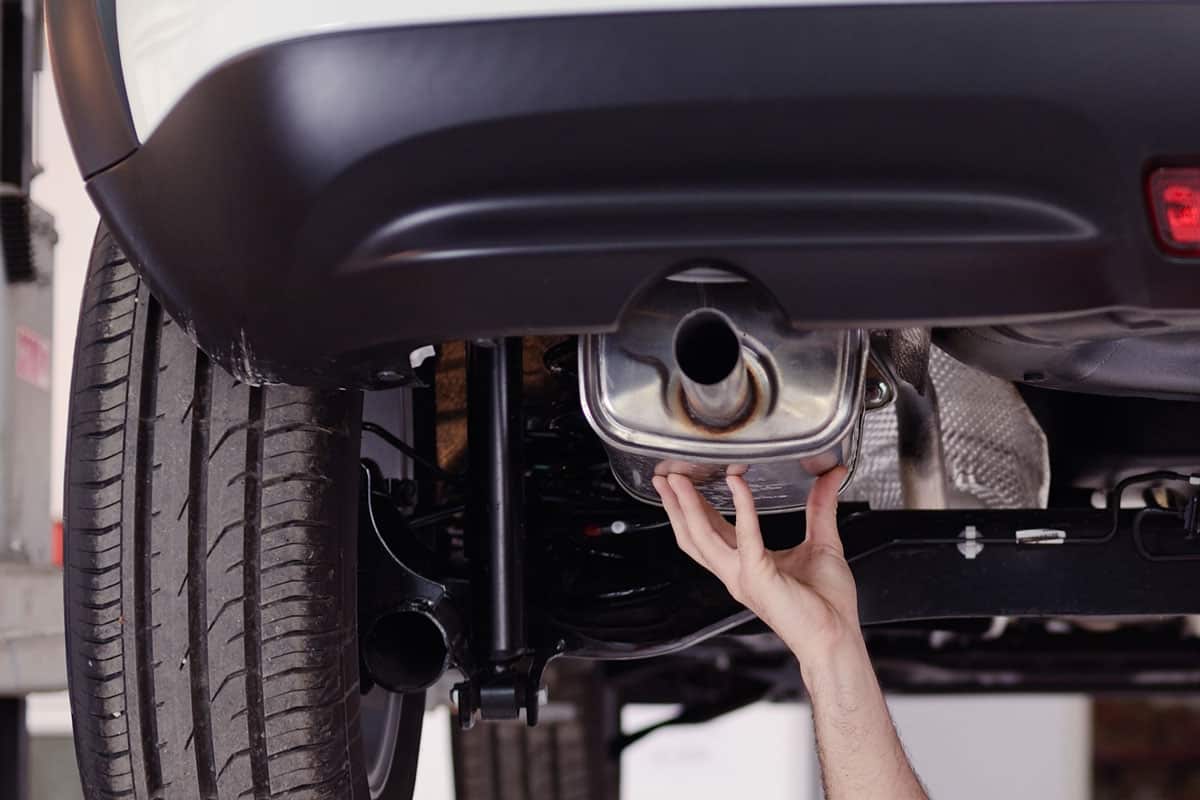
Is A Catalytic Converter Worth Replacing?
In general, it's a good idea to have a catalytic converter replaced. If you prolong the issue, more issues will arise, which means more repair costs.
The only time it may not be worth replacing the catalytic converter is if the repair cost is more than the value of the vehicle. Even then, it may not be worth putting $500 into a car that is only worth $1,500.
Instead, you may be better off putting that money towards a downpayment on a new vehicle. At the end of the day, you need to do what is best for you.
Consider the advice from your mechanic and weigh your options. You could also try selling the vehicle as is and salvage what you can out of it.
Final Thoughts
While you can bypass a catalytic converter, it's best to consider the risks involved. Sure, you can increase horsepower, but for a daily commuter, it may be best to have the catalytic converter replaced or cleaned.
Before making any decisions, have a certified mechanic inspect your vehicle to give you the best course of action.
Made it to the end? Here are other articles you might find helpful:
Why Do Catalytic Converters Go Bad? [12 Reasons Explained]
How To Find Catalytic Converter Scrap Value By Serial Number
Can You Drive With A Bad Catalytic Converter [And For How Long]?
